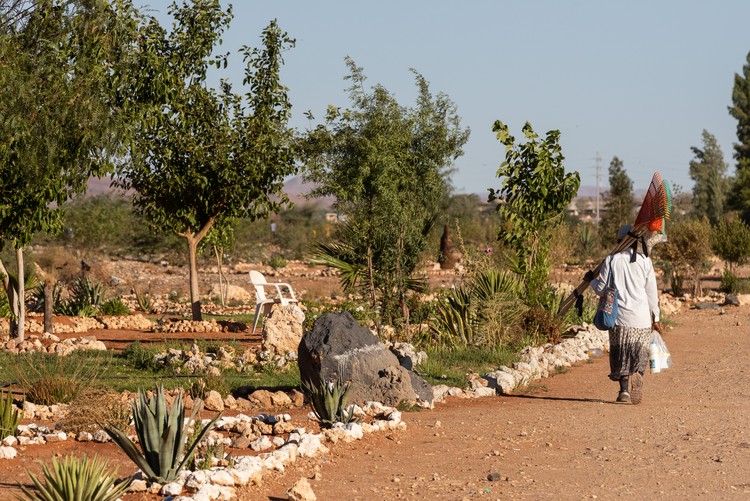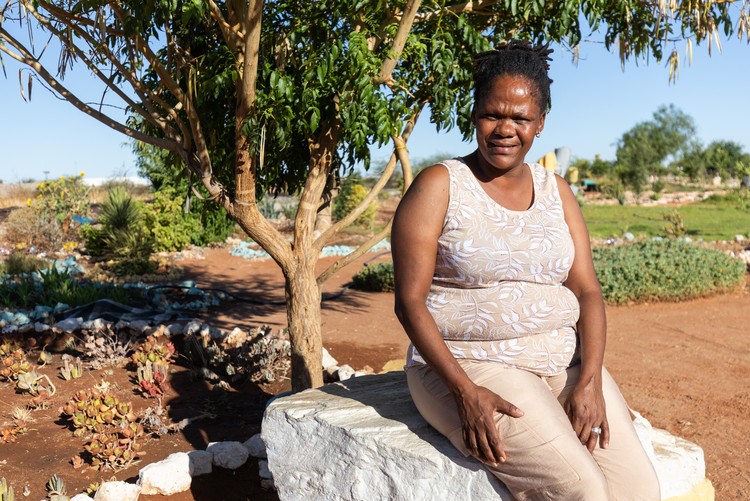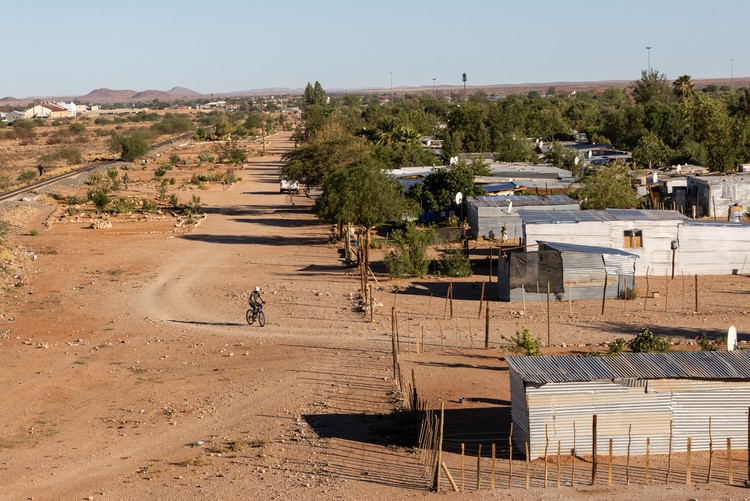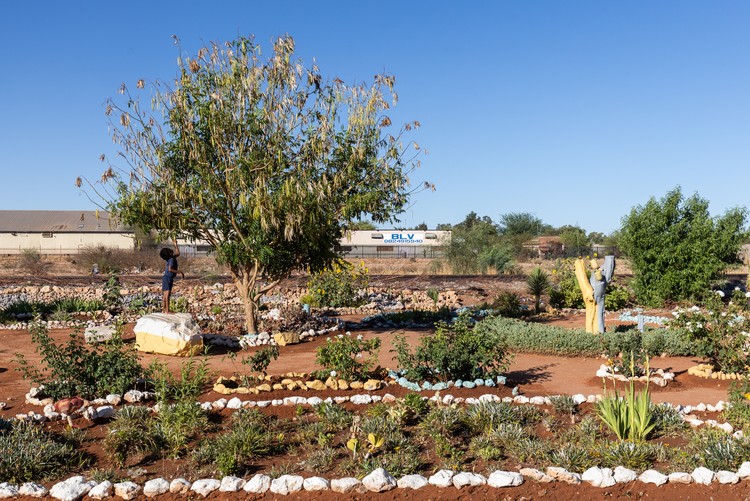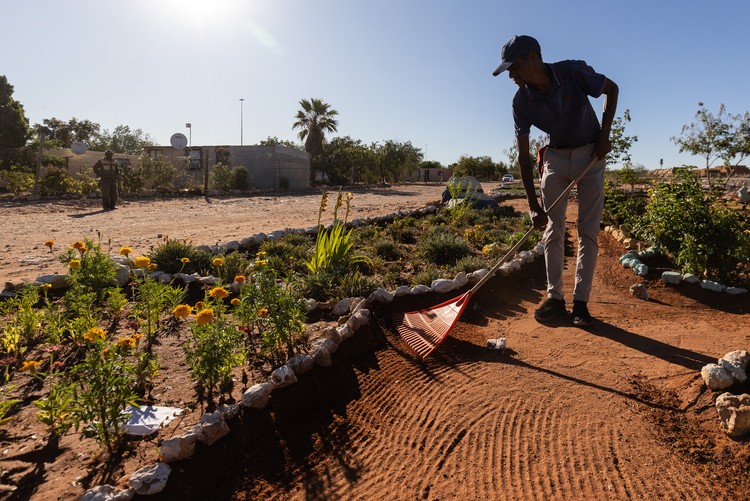In photos: turning rubbish dumps into gardens in Upington
“It is the love of nature that keeps us going”
Upington residents are turning rubbish dumps into lush gardens. Photos: Ashraf Hendricks
Along the train tracks in Rosedale, Upington, surrounded by the characteristic red sand of the Kalahari, former rubbish dumps are draped with succulents, flowers and trees, and there are paths laid out with painted rocks. This is the work of a group of residents in this low-income community, who decided to turn the rubbish dumps into community gardens.
Long-time Upington resident Sima Evelyn said she and three others in her neighbourhood decided three years ago to come together, clear the rubbish dumps, and design a garden “where we can sit in the afternoons”. It was the start of a project that has spread across the community.
About 20 people are currently volunteering in gardens in Rosedale.
“We go around the community; we clean where we can. It takes time and energy. Upington is very hot. It is the love of nature that keeps us going,” said Evelyn.
Upington resident Sima Evelyn, one of a small group who started the rubbish dump gardening project three years ago, says the gardens bring cool relief from the Upington heat.
Evelyn said the project also combats crime, because people sitting in the gardens in the afternoons can watch their houses and their neighbours’ houses. The garden is a safe place for the children to play, and people come there to take pictures, particularly events like matric farewells.
The gardens are laid out alongside the railway track in Rosedale, a low income neighborhood in Upington.
The four pioneers currently tend four gardens, and there are 21 other gardens in Rosedale that other community members look after, said Evelyn.
She said after they started their garden, others also took up the challenge to clear rubbish dumps and make a garden.
“We worked. We really worked,” said Martha Joseph.
She said after clearing the rubbish, they fetched red soil, took plants from their own yards, and even replanted plants which had been abandoned on the rubbish dumps.
The gardens are laid out with painted stones.
Joseph said the gardens are important for the wellbeing of the community. “You are comforted in this garden,” she said. She works in the garden every day and loves doing it, even when she is tired.
The residents have put in pipes to take water from their homes to water the gardens, which means their water bills are very high. They get donations of tools from local businesses.
Evelyn said they plan to start vegetable gardens. They are already eyeing a piece of land. “It will be very beneficial for this community. Poverty is a big challenge,” she said.
Volunteer Eshley Maasdorp says that he works in the garden every day.
Support independent journalism
Donate using Payfast

Don't miss out on the latest news
We respect your privacy, and promise we won't spam you.
Next: Brightly coloured double-storey homes replace shacks in Khayelitsha
Previous: Villagers work with Eastern Cape municipality to fix water supply
Letters
© 2024 GroundUp. This article is licensed under a Creative Commons Attribution-NoDerivatives 4.0 International License.
You may republish this article, so long as you credit the authors and GroundUp, and do not change the text. Please include a link back to the original article.
We put an invisible pixel in the article so that we can count traffic to republishers. All analytics tools are solely on our servers. We do not give our logs to any third party. Logs are deleted after two weeks. We do not use any IP address identifying information except to count regional traffic. We are solely interested in counting hits, not tracking users. If you republish, please do not delete the invisible pixel.

